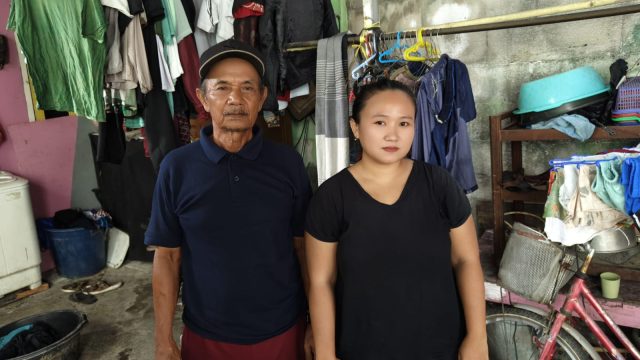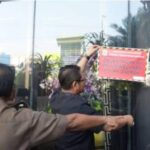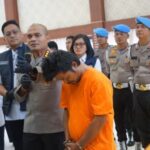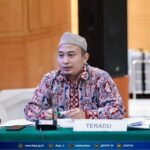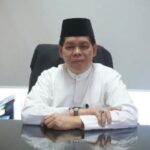BEKASI CITY – Feelings of injustice and oppression are often experienced by the poor. Similar to stories in Chinese dramas, the poor frequently become objects of oppression and humiliation in life.
This story might be similar to what was experienced by Muhammad Husni (62), a security guard and parking attendant at a community health center in the Teluk Pucung area, North Bekasi District, Bekasi City.
The elderly man, who claims to have worked for 21 years at the Teluk Pucung Community Health Center, feels wronged because his usual salary was apparently being deducted every month.
According to his account, since 2018, payments were transferred via bank, but he never held the ATM card or its PIN.
“They said that 1.8 million Rupiah was for a central contribution. But I was never given any official explanation,” said Husni, in a sad tone.
“I come to work every day. Even when I’m sick, I still show up. If I were absent, just ask the residents who get treatment here,” asserted Husni loudly when met at his residence.
Husni found out about the monthly salary deduction when his child checked the bank account and discovered the fact that his official salary was 3 million Rupiah per month. However, for years, Husni only received 1.2 million Rupiah in cash each month.
“I never knew my actual salary. From the start, the ATM and passbook were held by the health center, they even asked for the PIN. I just received cash and then signed,” he complained.
The Head of the Teluk Pucung Community Health Center acknowledged the salary deduction for Husni as a security worker at his facility. He told the media that the salary cut was due to declining work performance.
Husni also denied the accusation of poor attendance. Local residents can testify to his consistent presence. He said he sweeps the yard every morning. Even at night, if called, he always comes.
“There was never a fingerprint or signature attendance system. So what is the benchmark? If I skipped work, why were there never any complaints over 21 years?” he emphasized.
Now, the problems have become more complicated for Husni after a video about his salary deduction went viral on social media. Instead of getting justice, he was unilaterally dismissed without an official letter.
“I was called in and told not to come to work tomorrow. The reason given was that I am too old,” he said in a disappointed tone.
Husni hopes for intervention from the government. He has submitted requests for help up to the central level.
“To the Governor and the President, I ask for justice. I am just a common person demanding the rights to the fruit of my own labor,” he pleaded with a trembling voice.

